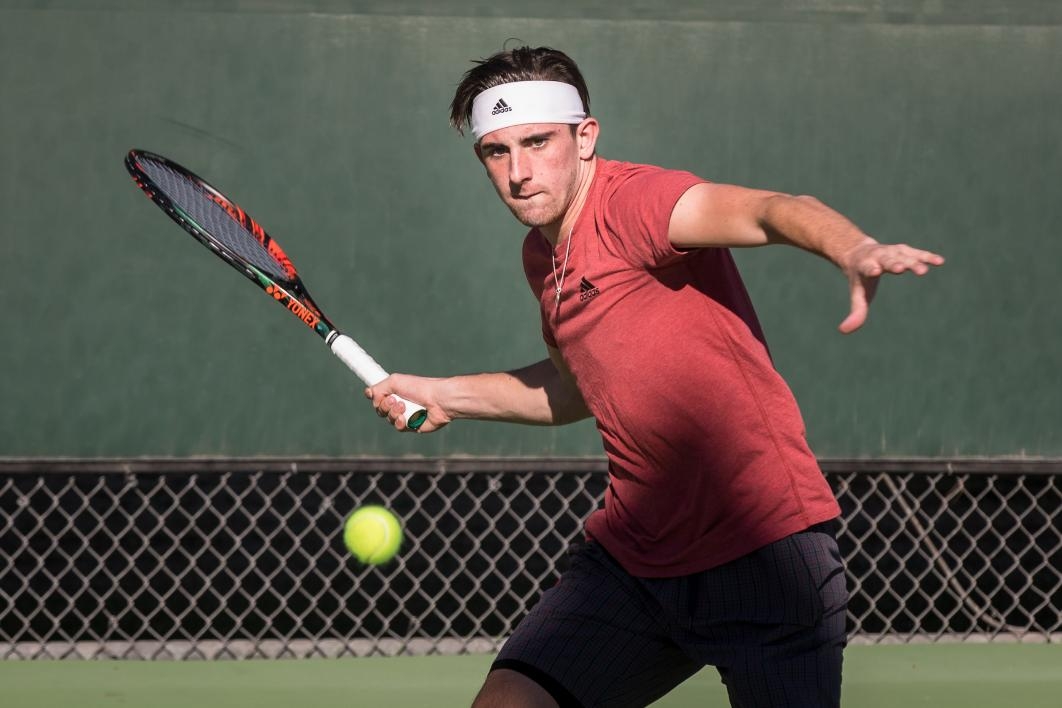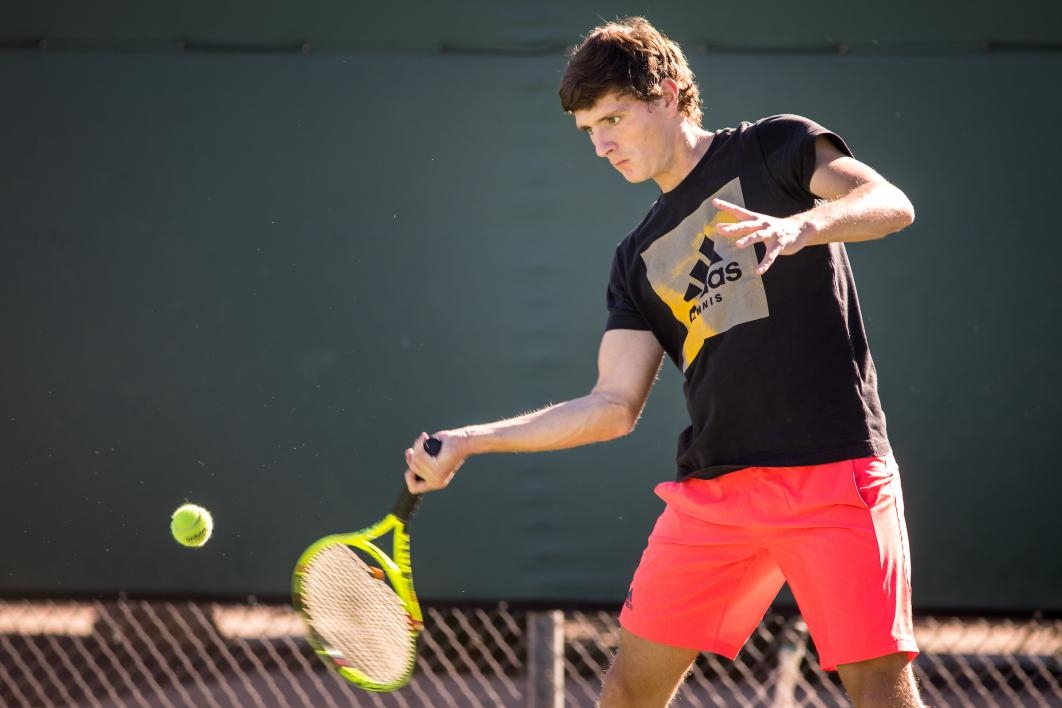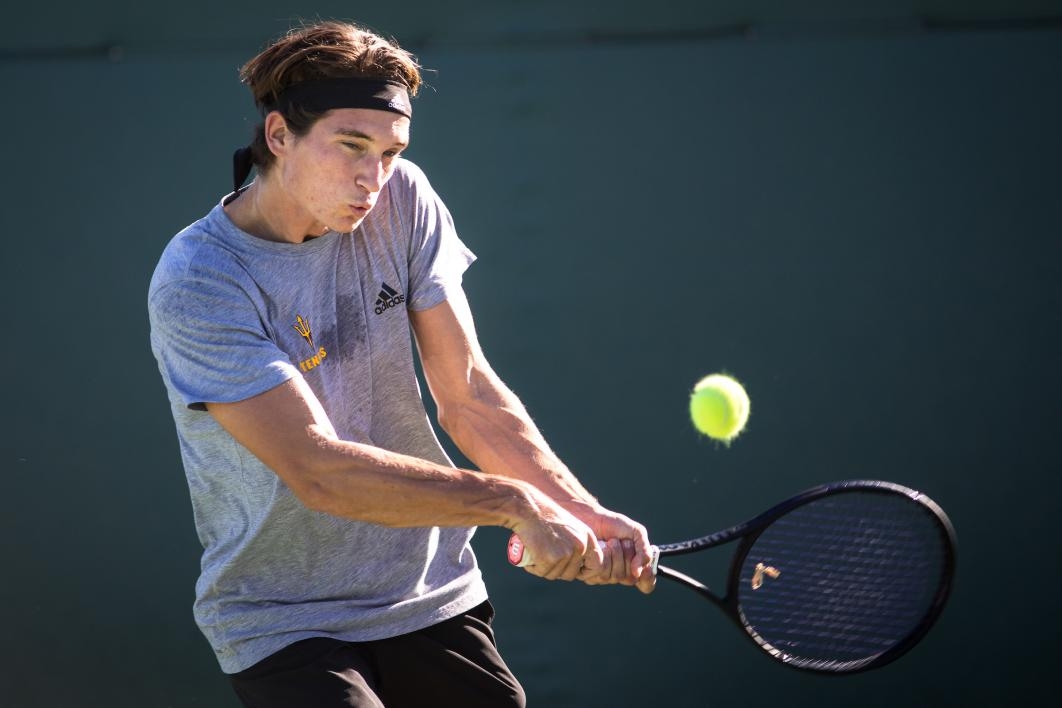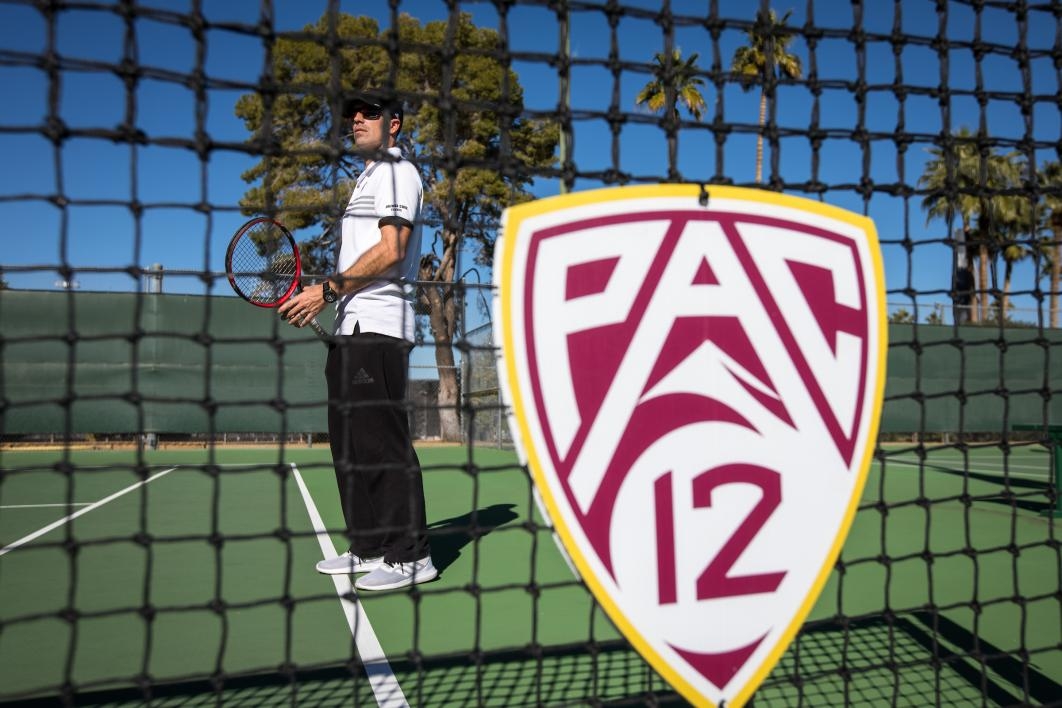Arizona State University is resuming men’s tennis, a decade after the sport was dropped to save money.
The program was brought back thanks in part to a $1 million donation by Vice President for Athletics Ray Anderson and his wife, Buffie, and also with $4 million from adidas, the Sun Devils’ athletic apparel partner.
Matt Hill, the head coach of the men’s tennis team, said the financial support has been an inspiration as the coaches and players have spent more than a year working toward their opening match on Saturday.
“As a college tennis coach, I know it’s so rare to have anything near that level of support,” Hill said. “It’s always in the back of our minds ... and it’s a different kind of pride you feel.”
Men's tennis is the fourth sportMen’s hockey went from a club to a Division 1 sport in 2015. Women’s triathlon launched in 2016 and won national titles in its first two years. ASU has added since Anderson was hired in January 2014, including men's hockey, women's triathlon and women’s lacrosse — which is launching this spring — raising the number of Sun Devil varsity sports to 26.
After Hill was hired in 2016, he assembled an international roster of athletes, with students from Switzerland, Belgium, Denmark, France, Germany, England and the United States.
“It’s an interesting concept when you have guys from all over the world and you have all these different cultures,” he said. “It broadens the way they see things and the way they operate through their narrow lens and as we widen that lens, it strengthens them as people and as players.”
The first match of the season will be meaningful: The men are facing Duke, which eliminated the Sun Devils in the 2008 NCAA Tournament, ASU’s last match before the sport was discontinued. The match is at 10:30 a.m. Saturday at Whiteman Tennis Center on the Tempe campus; admission is free.
Hill said that the players are working on team chemistry.
“When they’re playing a tournament in Croatia, they’re playing for themselves, and now they have different people they’ve become very close with and they’re playing for each other and that’s a different type of pressure than what they’ve felt before,” he said.
Benjamin Hannestad, a freshman from Denmark, said that he and the other players have talked with alumni who played on the team before it was discontinued.
“There are not many times you get to restart a program, so it’d kind of a big deal for us,” he said. “We want to continue the great tennis that is historic of ASU, and we want to make them proud.”
The ASU men’s tennis program ran from 1902 to 2008, and its renewal is part of Anderson’s effort to boost the university’s Olympic sports, including swimming and wrestling, including plans to build an elite-level training center.
That vision drew the Intercollegiate Tennis Association to relocate to Tempe from New Jersey in 2016. The nonprofit group, which is the governing body for college tennis, including all divisions of NCAA as well as the NAIA and community colleges, is based at ASU’s University Center complex in Tempe. The independent organization represents 1,200 institutions and 15,000 student athletes.
Tim Russell, the CEO of the association, said that proximity to ASU, with its plan for a new tennis facility, was a big reason the group relocated. He’s hoping to partner with the university on community tennis programs.
“College sports is usually dominated by football and basketball but we’re committed to the life sports, and tennis is a sport of a lifetime,” he said. “We’re creating competitive humans on and off the court.”
Russell said his group is seeing an uptick in colleges reinstating men’s tennis teams. Southern Arkansas University and Kentucky Wesleyan are adding men’s tennis teams this year after eliminating them in the 1990s.
“But ASU is the most visible, high-profile school to do this,” he said. “For a school the size of ASU to add a sport is a big deal, and for it to be tennis is thrilling.”
In the Pac-12 conference, ASU is joining Cal, the University of Arizona, Stanford, UCLA, USC, the University of Oregon, the University of Utah and the University of Washington in having both men’s and women’s tennis teams. Washington State and the University of Colorado have women’s teams only. Oregon State has neither.
Of all the Pac-12 sports, ASU does not have men’s and women’s rowing, women’s field hockey and men’s soccer, gymnastics, volleyball and water polo.
Hill said that recruiting to a new program is challenging because there are no rankings to tout.
“But there is an advantage to having a clean slate because you sell your vision and there’s nothing say it can’t be done.”
Top photo: Matt Hill, head coach of the ASU men's tennis team, volleys with a player during practice. The team takes on Duke University this Saturday — the last opponent the program faced before being discontinued in 2008. Photo by Charlie Leight/ASU Now
More Sun Devil community
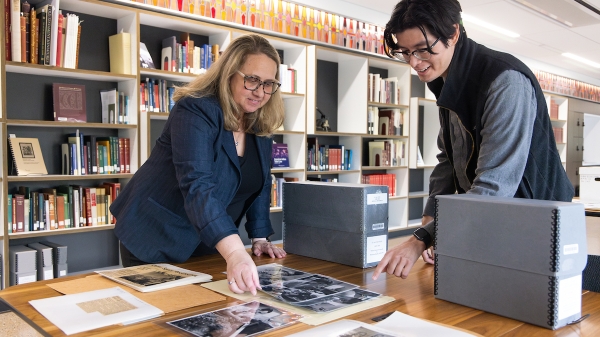
University Archives chronicles more than 140 years of Sun Devil history
What was the name of the butcher who bequeathed the first piece of land that ultimately became the nation’s largest public research university?Who was the mastermind behind Palm Walk’s signature…

3 outstanding ASU alumni named The College Leaders of 2024
Three outstanding Arizona State University alumni from The College of Liberal Arts and Sciences will be named as this year’s slate of The College Leaders. The honor recognizes alumni for their…

From mushy ice to Mullett Arena
Greg Powers rubbed the top of his head and smiled.Powers, Arizona State University’s hockey coach, had been asked to reflect on the 10th anniversary of ASU hockey becoming an NCAA Division I program…

